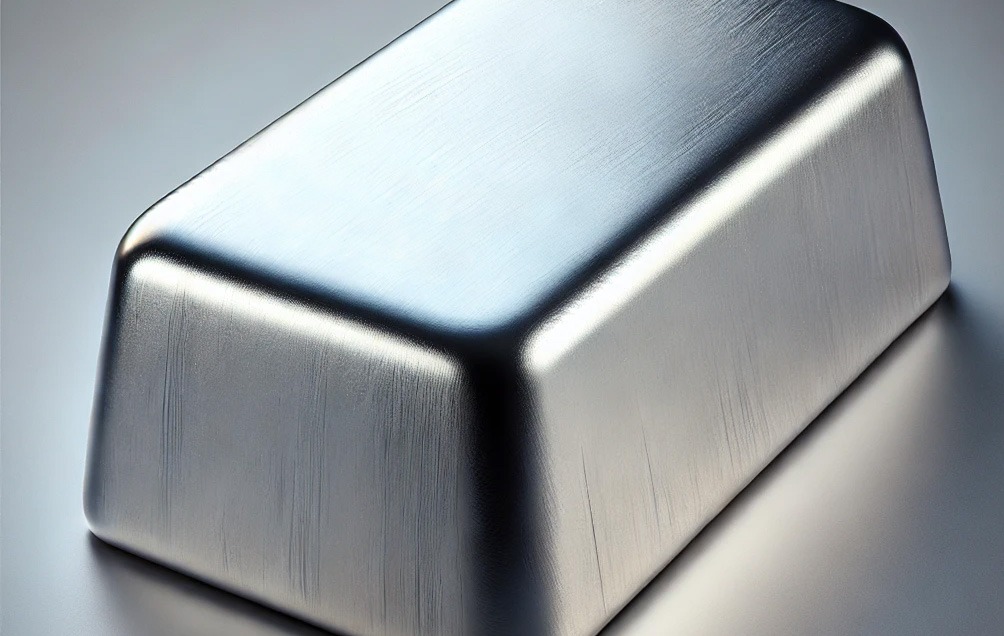The use of metal is an integral part of human development. Historical periods such as the Iron and Bronze Ages are called that because new technologies allowed people to use these metals to make tools, weapons, jewellery, and other items. Today, metals are all around us—from construction and machinery manufacturing to microscopic components in electronics and medical fields. Science is constantly searching for new ways to use the Earth’s elements more efficiently. Our team strives to extract these elements more effectively and return them to production from metal-containing waste.
All About Found Materials

Platinum
Platinum (Lat. Platinum) is an element in the group of rare metals. It has an atomic number of 78 and an atomic mass of 195.09. This metal is malleable, ductile, and can be easily stamped and rolled. Platinum has a melting temperature of 1769°C and a boiling point of 4300°C. Platinum typically contains up to 35% of impurities of palladium, iron, iridium, osmium, copper, nickel, radium, and gold.
Electrically conductive, chemically inert, and corrosion-resistant, platinum metal is widely used in various areas of industrial production. Relatively large amounts of platinum are found in automotive catalytic converters. The amount of platinum in these car parts ranges from about 3-7 grams per catalyst. Although platinum is often used in the manufacture of various electronic devices, the amount of precious metal in such devices is so small that the retail extraction of platinum from them is considered to be a completely economically unviable process.
Platinum and its alloys are used to make tableware, various appliances, electrodes and electronic contacts, thermometers and thermocouples, and surgical instruments that are resistant to corrosion and chemical reactions. In medicine, platinum is also used as a specific alloy in the manufacture of dental materials and biomedical devices (such as stents and pacemakers).
In the glass industry, platinum and rhodium alloys are used to coat components of electronic glassmaking equipment and to protect various electronic devices from corrosion. Platinum is also widely used in the manufacture of jewellery and investment bullions due to its unique appearance and rarity.
Sources:
Get more value from your scrap metal now!
Our managers will contact you to provide professional consultation.
All you need to know about buying scrap metal
Find out about latest materials purchasing prices, conditions and news.